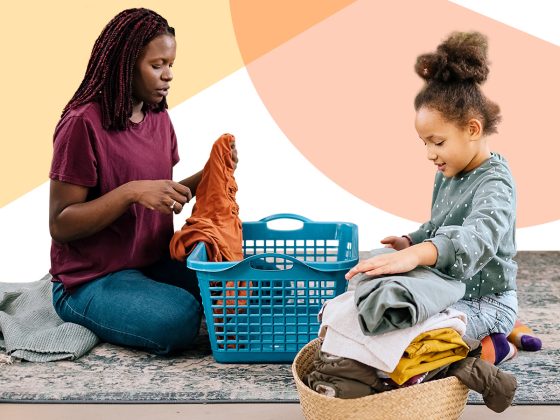
Empowering Kids to Make a Big Impact in Their Communities
Learning about what makes a community is the first step in learning how to take care of our communities!
Even very young children can be helpful in their communities. Becoming involved helps children develop empathy, practice kindness, and build a sense of belonging.
To start, help children understand:
- A community is a group of people who live or work together and depend on one another.
- Our family is one kind of community. We all need and help each other.
- A neighborhood is another kind of community. Even though we aren’t related, we all share our street or building, and can find ways to cooperate and be kind.
With children, think of other kinds of communities. These might include extended families, schools, or playgroups.
Now that children have thought about what a community is, help them think about ways they can help:
- Acts of Kindness. Help children think of ways they can do small kindnesses for neighbors like sending notes, making pictures, or sharing a favorite book with another child in the neighborhood.
- Family Help. Find parts of your everyday routines or household tasks children can participate in, like holding a dustpan when sweeping, organizing ingredients when cooking, or holding a shopping list at the grocery store.
- Community Connection. Get to know your community. With children, learn about events that are happening around you like outdoor concerts and gatherings. Together, find a few to explore.
Small actions can have a big impact for children and the world we share!
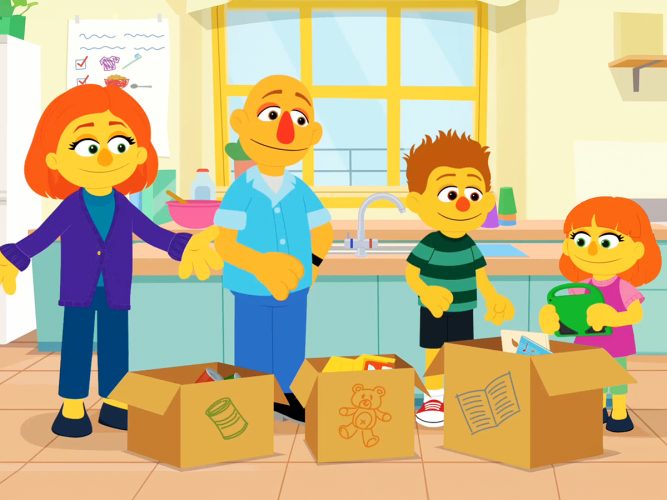
Helping at Home, Helping the Neighborhood
Little acts can make a big difference.
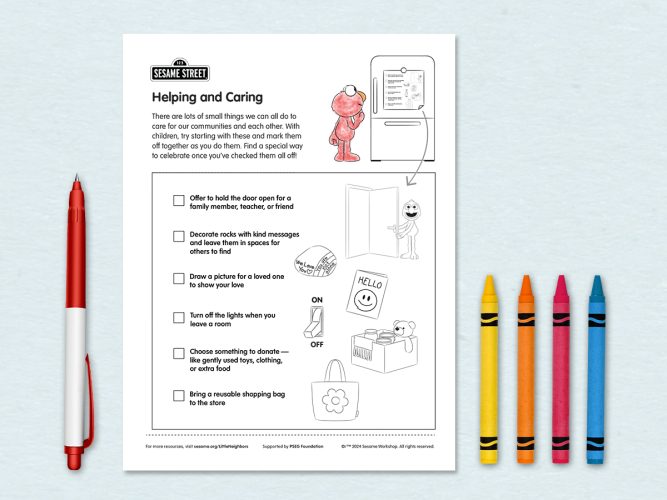
Helping and Caring
Use this checklist with children to set small goals together and help your community!
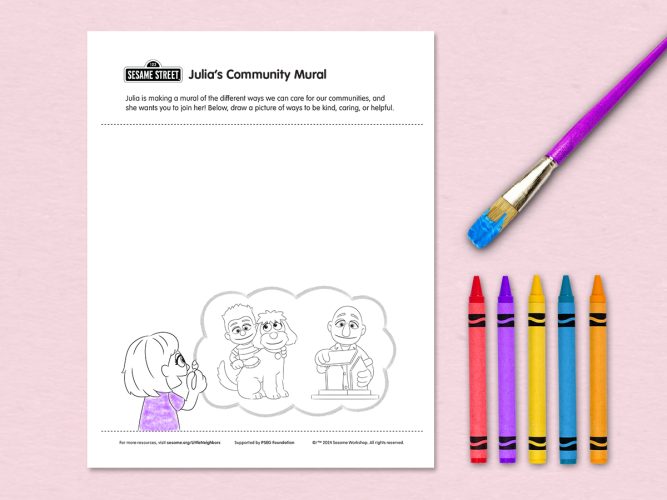
Julia’s Community Mural
There are so many ways to be kind, caring, and helpful in our communities!
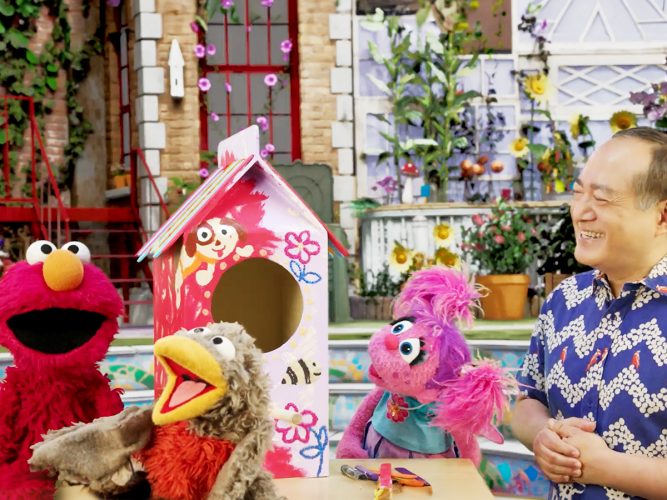
Little Neighbors Can Do Big Things
A new friend joins the Little Neighbors Club!
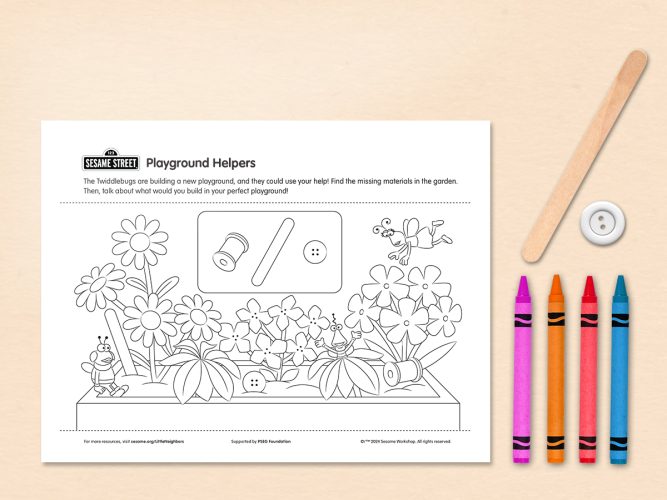
Playground Helpers
Help the Twiddlebugs find their lost materials to build their playground!
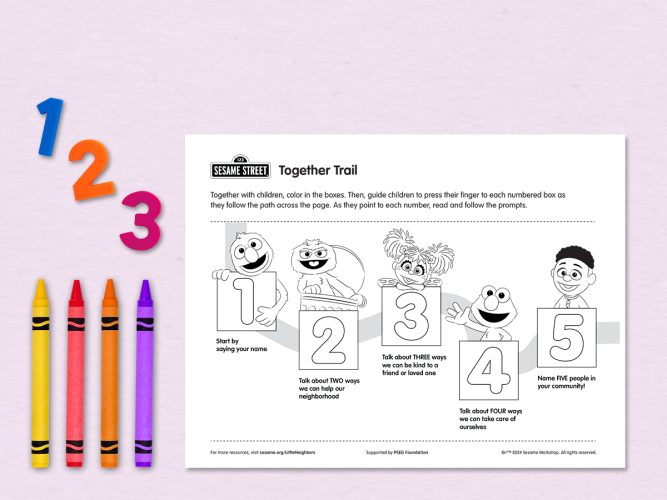
Together Trail
Help children practice counting and learn ways to help your community.
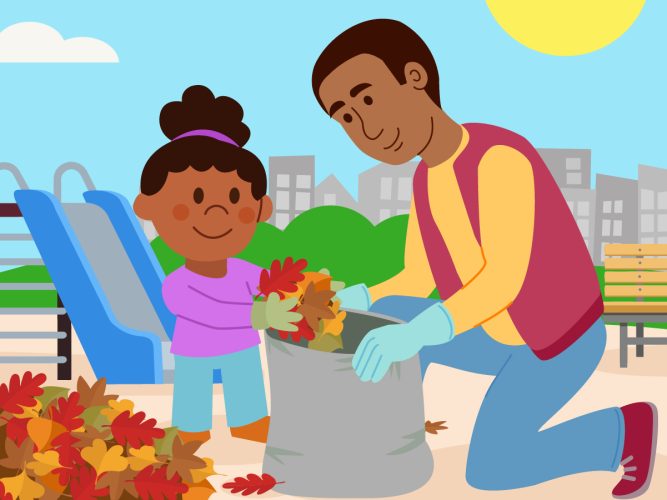
Little Neighbors: Fostering Community Connection, Engagement, and Exploration
